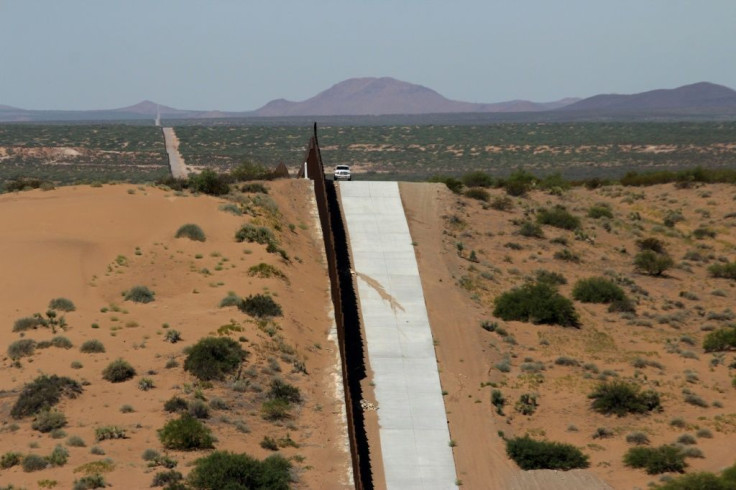Mormon Family Killed: Latest On Authorities Search For Suspects Of Ambush Near US - Mexico Border

More details are emerging about members of a Mormon family who were brutally ambushed Monday afternoon in Mexico on a highway near the U.S. border. The surviving members of the extended LeBaron family, who are dual Mexican and American citizens, confirmed that nine members – three women, four children and two infants – were shot and burned alive in the ambush.
The three women who died were identified as 30-year-old Rhonita Maria Miller, 31-year-old Christina Marie Langford Johnson and 43-year-old Dawna Ray Langford. Four of Miller's children were killed, while two of Langford's children were killed.
There were eight survivors from the attack but the death toll could reportedly grow. Six children were wounded. Seven children that survived the attack were airlifted to Douglas, Arizona, and from there were taken to a hospital in Tucson.
Police are investigating the motive for the attack, including the possibility of it being a case of mistaken identity. According to the New York Times, surviving family members believe the gunmen were in organized crime.
Mexican Security Secretary Alfonso Durazo has suggested that the gunmen could have mistaken the family's vehicles for those of a rival gang. Others have suggested that the killings are related to another member of the family, who was killed last year after speaking out against the drug cartels' kidnapping tactics.
Alex LeBaron, a surviving family member, appeared to confirm Durazo's assessment, telling CNN that the family was attacked "separately but simultaneously by two different groups of the same cartel," and that it was "most likely by accident, mistaken for their rivals."
Authorities said the family was traveling in three SUVs from Bavispe, Sonora, to Janos, Chihuahua, in the north of Mexico and about 100 miles south of the Arizona border. The victims lived in La Mora, Mexico, a small Mormon offshoot community.
The convoy was driving together for safety reasons. Kendra Lee Miller, whose sister-in-law Rhonita Maria Miller was killed in the ambush, said the family was going to a wedding.
According to USA Today, Leah Staddon, a relative who grew up in the same Mormon community before moving to Arizona, "said that relatives in Mexico told her that after the gunmen killed her sister-in-law and two children, they opened the door and saw more children and let them go."
It has been determined that the family were members of a fundamentalist offshoot of the Church of Jesus Christ of Latter-Day Saints, according to representatives of the church.
“As from what I can tell, these were members of a polygamist sect, and not members of The Church of Jesus Christ of Latter-day Saints,” Eric Hawkin, a church spokesman, said in a statement to CNN.
Utah Sen. Mitt Romney, who is a member of the LDS Church, posted a message of condolence on his Twitter account.
Ann and I are heartbroken for the victims of the horrific attacks in Mexico. Our prayers are with their families who have suffered such an unspeakable tragedy. The U.S. must work with Mexican officials to hold accountable those responsible for this senseless violence.
— Mitt Romney (@MittRomney) November 5, 2019
“As a mother I feel angry, scorn and a profound pain for the cowardly events in the mountains between Sonora and Chihuahua,” Sonora Gov. Claudia Pavlovich Arellano tweeted in response to the attack. “I don't know what type of monsters would dare to hurt women and children. As governor, you have all my collaboration so that this doesn't remain unpunished and the responsible parties pay.”
Mexico President Andres Manuel Lopez Obrador said Tuesday that the area of the ambush “has been a very violent area for many years.” In August 2018, a U.S. State Department travel advisory was issued for the state of Sonora due to crime, noting parts were used for drug trade and human trafficking.
"Sonora is a key location used by the international drug trade and human trafficking networks. However, northern Sonora experiences much lower levels of crime than cities closer to Sinaloa and other parts of Mexico," the State Department notes in a Level 3: Reconsider Travel advisory.
The Travel Advisory Levels are 1) Exercise normal precautions, 2) Exercise increased caution, 3) Reconsider travel and 4) Do not travel.
A spokeswoman for the Sonora Attorney General's Office said more details about the attack should be released Tuesday. The FBI has also opened an investigation.
© Copyright IBTimes 2025. All rights reserved.





















